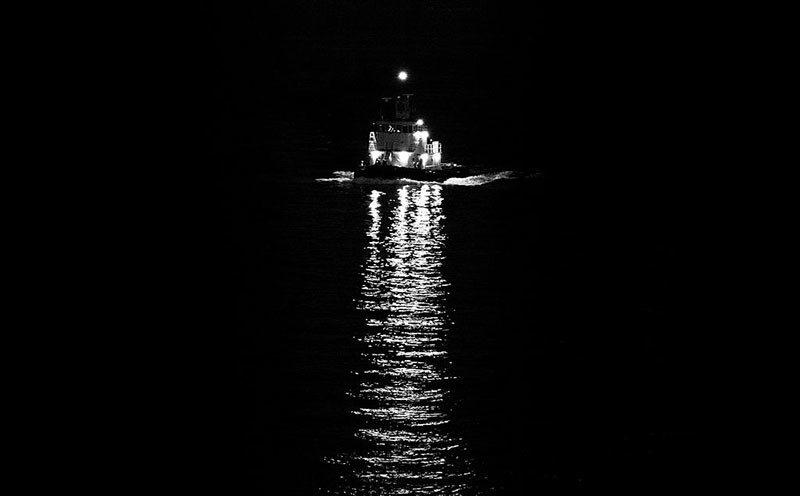In last month’s blog about interior lighting, I focused on how lighting “temperature” affects sleep cycles and how choosing the right type of bulb can improve your sleep.
Sleep, of course, is very important, but at some point you must wake up and start standing a watch. It’s called a “watch” for good reason. Namely because you must rely on your eyes to see things, both directly via the naked eye or by using binoculars, or indirectly via radar and AIS-enabled navigation chart plotters. Either way, you must be able to actually see, and see well, when you start the watch.
And how are we able to see at night? Cells in our eyes called rods and cones allow us to see in the “dark.” But we are only able to do this after the eyes adapt to widely varying levels of reduced light. This is a gradual process that takes about 20 to 30 minutes. That is when we reach what I describe as “functional night vision.” This continues to improve at a slower rate for several hours before reaching peak capability. Our eyes can’t adapt to complete darkness, the absence of all light like when in a cave.
There must be some light in order for us to see anything, and that is what our eyes adapt to. The length of time needed for people to adapt varies and depends on how bright your previous light exposure was in relation to how dark the new environment is. Age, eye condition, fatigue and overall health all play a role. Some people’s night vision can be frighteningly poor.
When you assume the navigation watch (when you relieve the person at the helm, wheel, or the sticks), you take full responsibility for anything and everything. If you’ve just come up from a brightly lit galley, head, or other space, then you’re taking on that responsibility blindly.
For obvious reasons, nobody should start a watch at night until they’ve reached something pretty close to the functional night-vision stage. To enable that requires a different approach to lighting than is the norm on many vessels.




